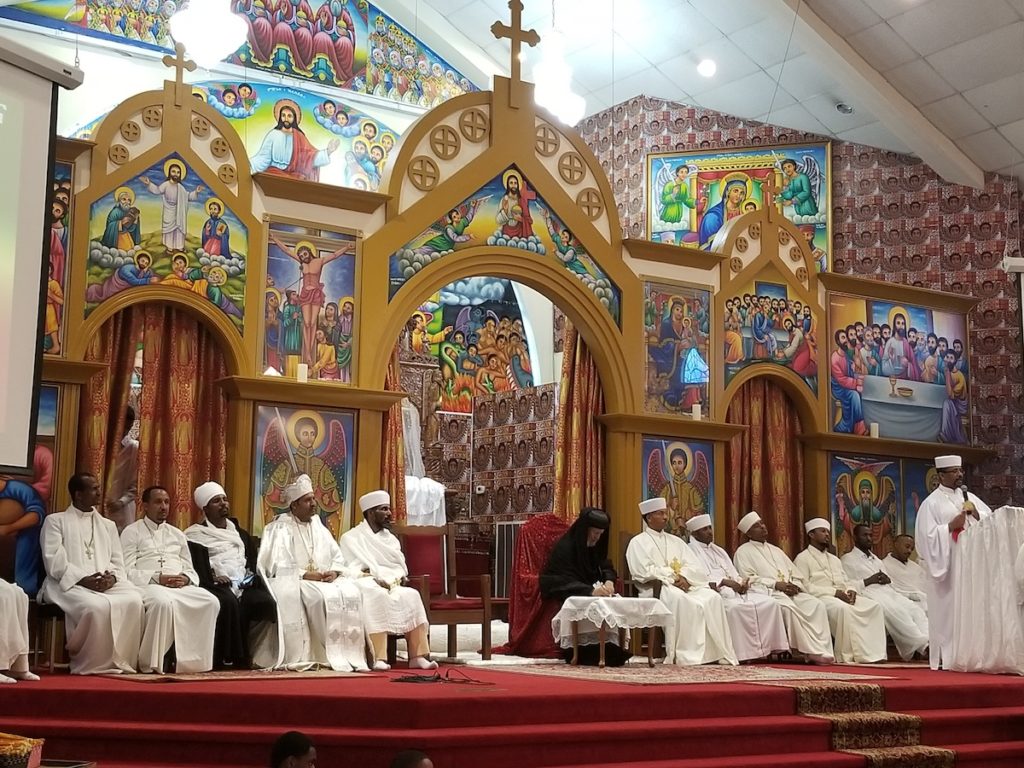
Hundreds of Ethiopian immigrants and their families held a rare show of religious unification in South Nashville on Sunday, after more than a quarter century of division.
The community is seeking to reconcile a political and religious rift 12,000 miles away that has had a real impact on Nashvillians.
Abey Lissane, the head of public relations for the Ethiopian Community Association in Nashville, remembers 27 years ago when the government collapsed and the religious patriarch fled the country.
“As a young Ethiopian Orthodox Christian child, it was a confusing time,” he says. State media first reported that the patriarch simply left; later, government official admitted they sent him into exile.
In the years since, a whole generation of Ethiopians spread around the world has lived with a divided church: one side that recognizes the exiled patriarch, the other that follows the leader installed by the church at home.
That divide has been present in Nashville’s growing Ethiopian community as well. Lissane says he thinks it’s still a confusing time for kids.
“They go to this church, and somebody will tell them, ‘This is the right one, you shouldn’t go to the other one,’ and the other church does the same thing,” he says. “So this has a huge impact on social life.”
But this seems to be changing. A new prime minister in Ethiopia recently welcomed back the exiled religious leader and called for unity. And on Sunday evening in Nashville, people from the various congregations came together for a reconciliation and worship.
Lissane says it gives him hope that the Ethiopian community in the city will be stronger for it, “learning from this mistake and trying to mobilize a new way of moving together forward.”


